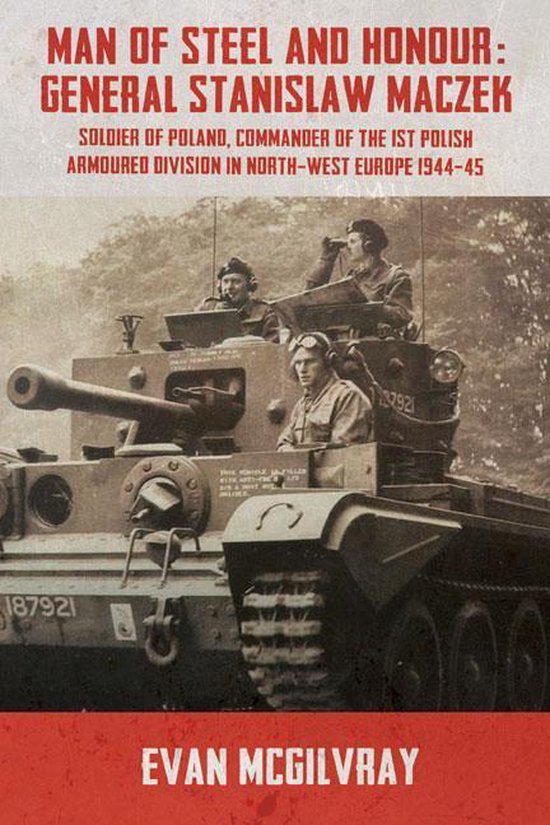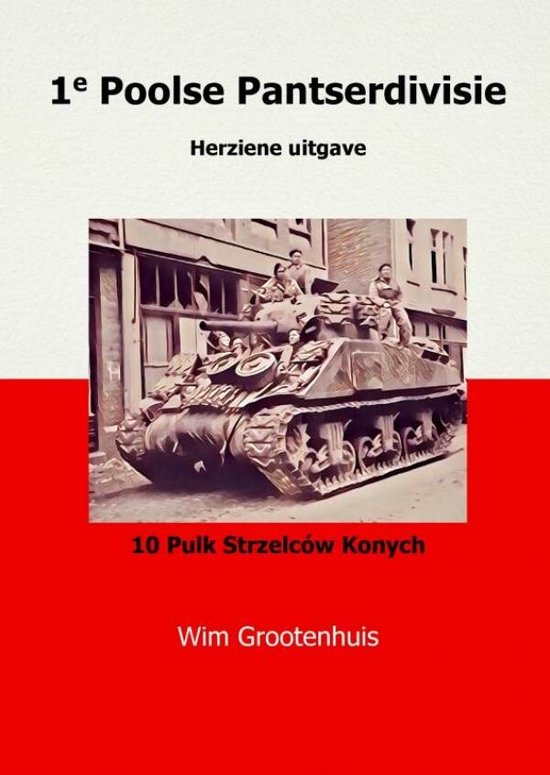Helion studies in military history man of steel and honour general stanislaw maczek

Direct beschikbaar
This is a biography of one of the most undervalued commanders of the Second World War, General Stanislaw Maczek, a soldier overlooked by most military historians in the West both because he was Polish and above politics. Unlike most Polish commanders he rocked no boats and after his service was complete in 1947 he retreated into relative obscurity. When he died at the age of 102 he had left a single published book of his war memoirs and little else to the popular imagination. One had to be acquainted with his armored division, the wartime 1st Polish Armored Division in order to know anything of the man or even to have even heard of him. This book is an attempt to try to put the historical record right, at least in the English language, and place front and center into the wartime historiography the story of an extraordinary man. Maczek's story is the story of 20th Century Poland and begins naturally enough with his birth in 1892, into a Poland that hadn't existed since 1795 when it was trisected between the three empires of Austrian, Russia and Prussia (later Germany). Maczek was born in the Austrian sector, which meant in 1914 he was conscripted into the Imperial Austrian Army, with which he served with great credit on the Italian Front, high in the Alps. It was this experience which was to serve Maczek well in his future career in the Polish Army after 1918. Maczek should be remembered for his pioneering use of mixed armor and infantry units as well as the early use of commando-style units during the Polish border wars of 1918-1920. However his work was ignored despite its obvious success. He should also be recognized as being the savior of the Normandy Campaign, which by August 1944 was seriously bogged down. It was feared that the German forces in Normandy might be able to flee over the River Seine and head eastwards towards Germany. A magnificent, stubborn and costly stand by the Polish 1st Armored Division during August 1944 prevented this happening, and the Normandy Campaign was able to succeed. This is yet to be credited to the Poles in the imagination of the West. Maczek's division was later able to advance into Germany, fighting its way through the Low Countries. Maczek's command of the division and its combat service in North-West Europe 1944-45 is fully described, and represents, in particular, an important contribution to our knowledge of the Normandy Campaign. After the war, Maczek, now exiled and stateless and with his homeland seized by the Soviet Union, was stripped of his Polish citizenship by the Communists, and was left to bring up his young family on his wages as a barman. This is the story of a man who changed history, fully researched from archival and printed materials, and with a heavy reliance on original Polish language sources. The text is complemented by over 100 previously unpublished photographs, focusing on Maczek and the 1st Polish Armored Division 1944-45. This book will be produced in a limited-edition hardback printing of 500 copies, all copies individually numbered, and signed by the author.Evan McGilvray was born in August 1961 in Winchester, Hampshire. He is a graduate of the School of Slavonic and East European Studies, University of London (UCL). Following this he undertook post-graduate studies at the University of Bradford and the University of Leeds, where he researched the politics of the Polish Army from 1918 to date. He also taught at the two universities. Evan is quite happy to challenge the myths that Poles have created around the Polish Army and the role of Poland during the Second World War. He also has an interest in other militaries and their role in society - quite simply civil-military relations - Poland being one of the most interesting European examples. At present Evan is writing a new history of the 1944 Warsaw Uprising in readiness for its seventieth anniversary in 2014, as well as researching the military politics regarding the involvement of General Sir Ian Hamilton at the Dardanelles during 1915. He is also anticipating the opening of the archives relating to the Falklands War in 2012. To relax he has learnt to ignore the rest of the world, and notes, "Despite what Poles think, I am not a Scot, only in name!"
- 1 Bekijk alle specificaties


Prijs:

Taal: en
Bindwijze: Ebook
Oorspronkelijke releasedatum: 19 maart 2013
Ebook Formaat: Adobe ePub
Illustraties: Nee
Hoofdauteur: Evan Mcgilvray
Hoofduitgeverij: Helion And Company
Lees dit ebook op: Android (smartphone en tablet)
Lees dit ebook op: Kobo e-reader
Lees dit ebook op: Desktop (Mac en Windows)
Lees dit ebook op: iOS (smartphone en tablet)
Lees dit ebook op: Windows (smartphone en tablet)
Studieboek: Nee
EAN: 9781909384798